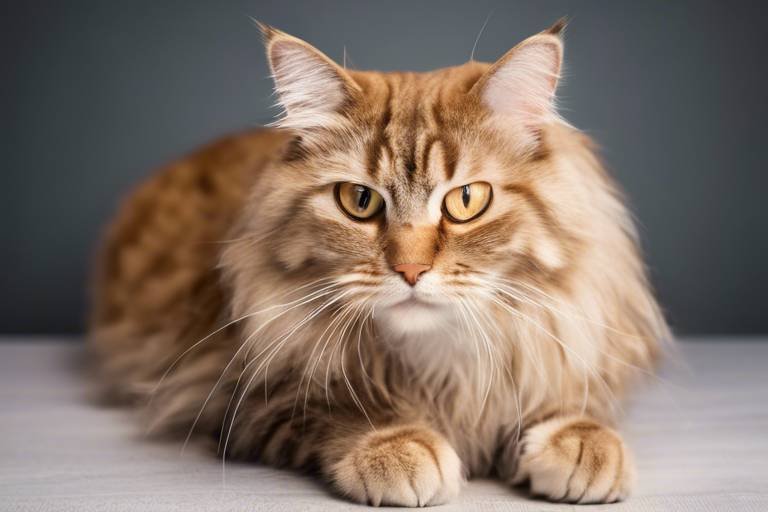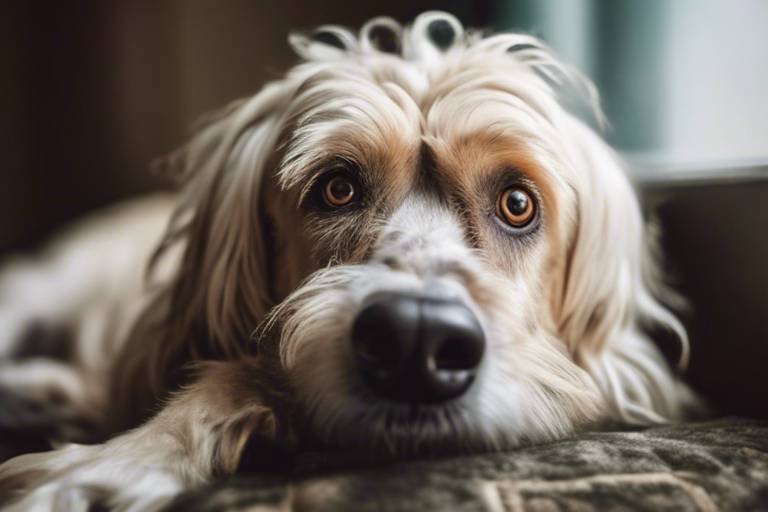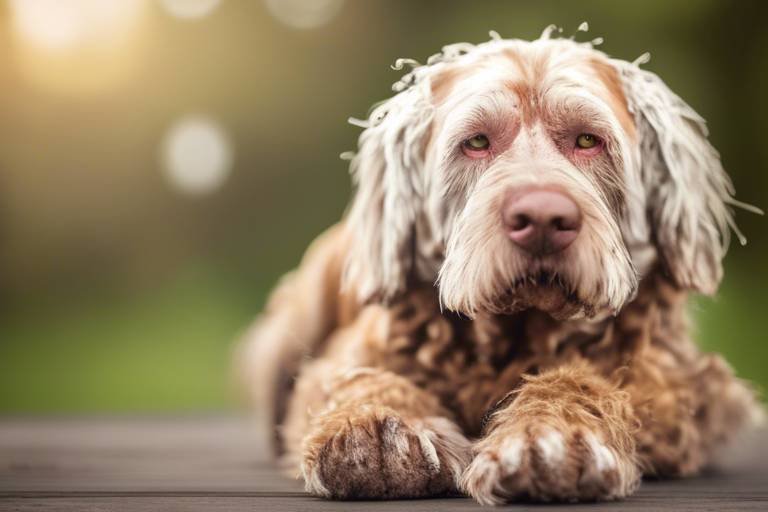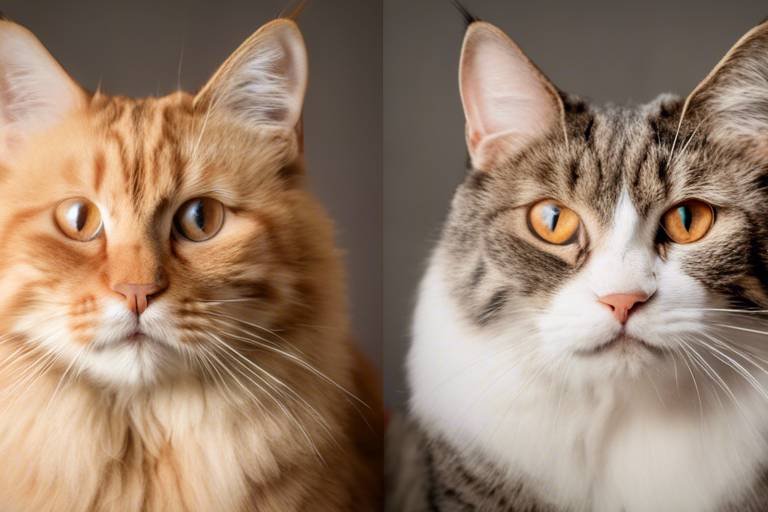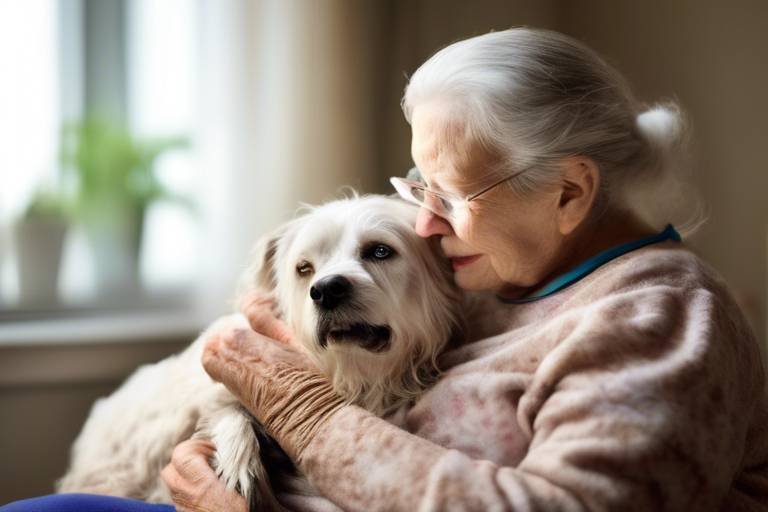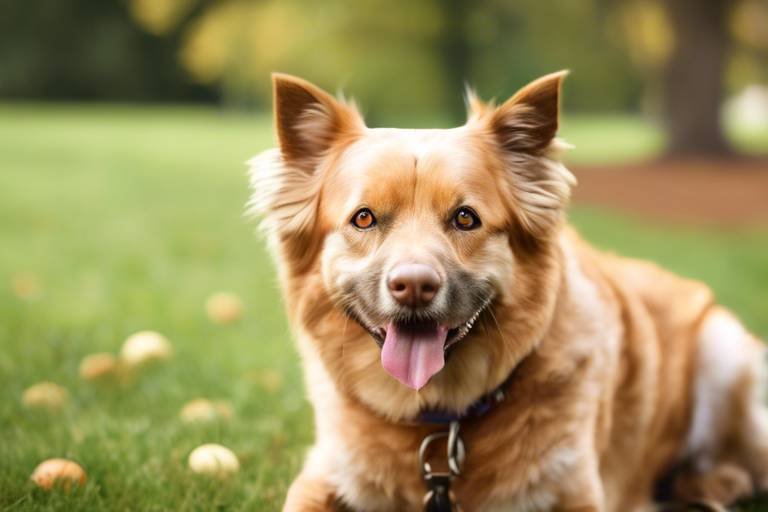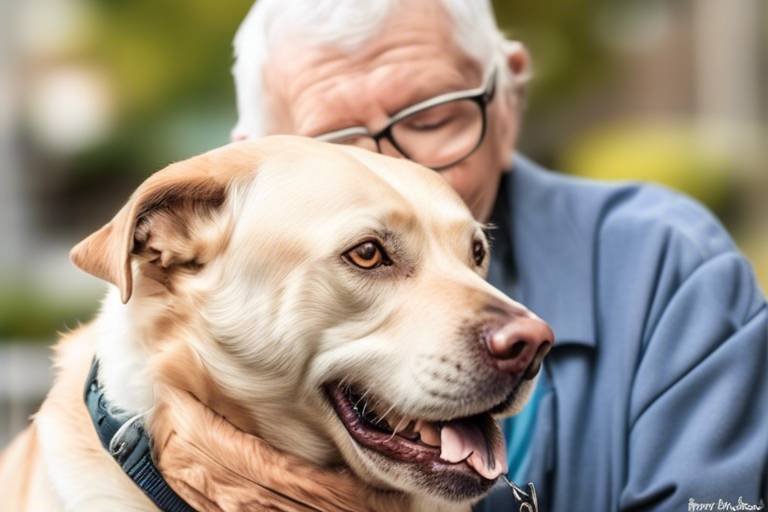Understanding the Unique Needs of Senior Cats
As our beloved feline companions grow older, their needs evolve in ways that can sometimes catch us off guard. Just like a fine wine matures with age, senior cats require a tailored approach to ensure they lead not just long lives, but happy and fulfilling ones. It's essential to recognize that aging isn't merely a countdown of years; it's a transition that affects their health, behavior, and overall quality of life. So, what can we do to support our senior cats as they navigate their golden years?
First and foremost, understanding the unique health considerations for senior cats is crucial. As they age, felines become more susceptible to a variety of health issues, including arthritis, dental problems, and even cognitive decline. Regular veterinary check-ups become a lifeline, providing the opportunity to catch potential issues early. Imagine if you could detect a problem before it escalates—wouldn’t that give you peace of mind? This proactive approach not only helps in managing their health effectively but also enhances their overall well-being.
Moreover, nutrition plays a pivotal role in the lives of aging cats. Just like humans, a proper diet can significantly impact their health and longevity. Tailoring their meals to meet their changing nutritional needs is not just a good idea; it's essential. High-quality food formulated specifically for senior cats can provide the necessary nutrients to support their energy levels and immune system. Think of it as giving them a personalized meal plan that caters to their unique requirements.
Hydration is another critical aspect that often gets overlooked. Senior cats typically require increased water intake to maintain kidney health and prevent urinary issues. Encouraging your cat to drink more water can be as simple as providing fresh, clean water daily and considering the addition of wet food to their diet. Just like we feel more energetic when hydrated, our furry friends thrive when they have access to adequate fluids.
Lastly, creating a comfortable environment is key. As your cat ages, they may face physical limitations that can affect their mobility. Implementing accessibility features in your home, such as ramps or soft bedding, can make a world of difference. Imagine how comforting it would be for your cat to have a cozy spot that’s easy to reach! Additionally, designating safe play areas allows them to engage in gentle activities that promote physical health and mental stimulation without the risk of overexertion.
In summary, understanding and meeting the unique needs of senior cats is a journey filled with love and care. By focusing on their health, nutrition, and environment, we can help them enjoy their twilight years to the fullest. After all, these years are not just about aging—they're about thriving in a world that’s been filled with companionship and joy.
- What age is considered senior for cats? Generally, cats are considered seniors when they reach the age of 7 years.
- How often should I take my senior cat to the vet? It's recommended to have a vet check-up at least twice a year for senior cats.
- What are the signs my senior cat may be unwell? Look for changes in appetite, behavior, weight loss, or difficulty in movement.
- Can senior cats still play? Yes! Gentle play is important for their mental and physical health.
- Should I change my senior cat's diet? Absolutely! Consult your vet for a diet that meets their changing nutritional needs.
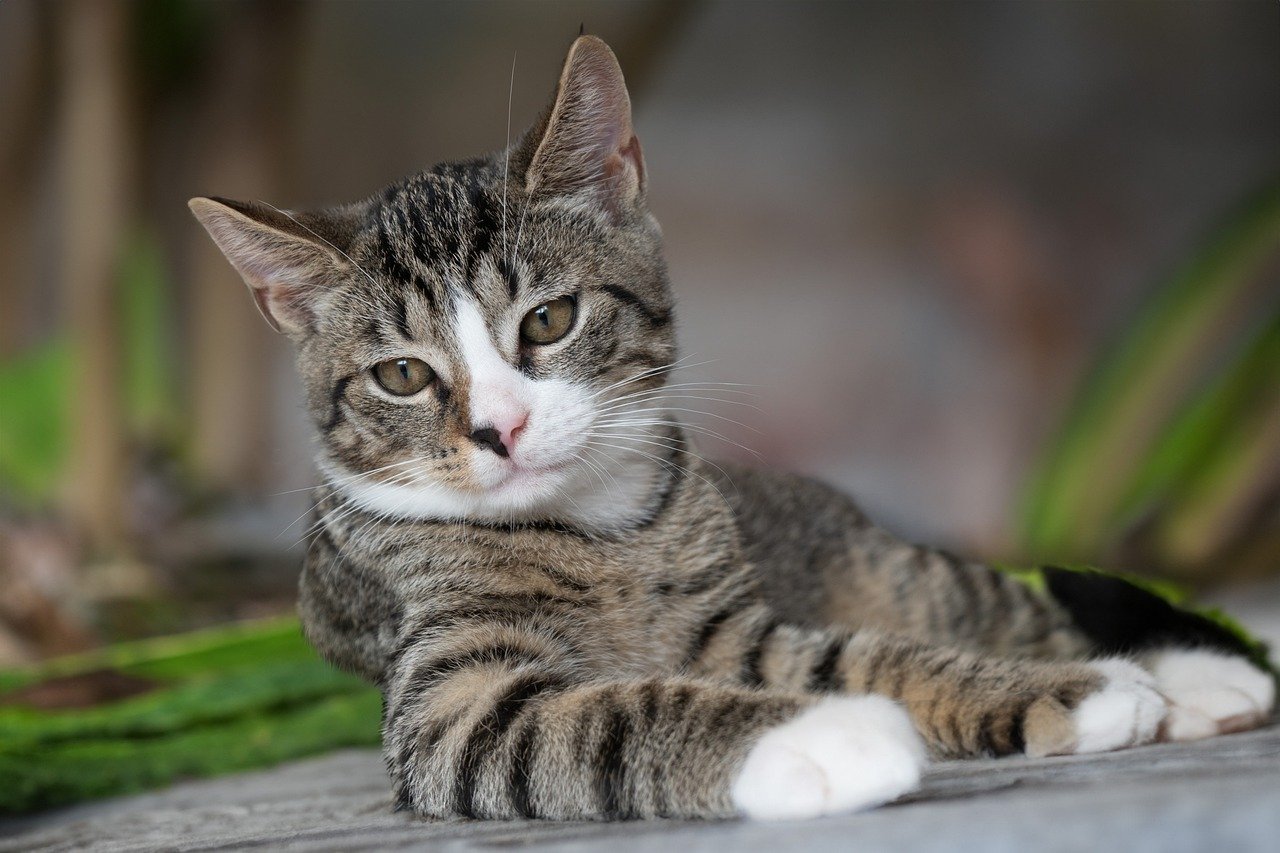
Health Considerations for Senior Cats
As our feline friends gracefully age, they become more susceptible to various health issues. Just like us, senior cats experience changes in their bodies that can lead to conditions such as arthritis, dental disease, and even kidney problems. Regular veterinary check-ups are essential to catch these ailments early. Imagine your cat as a fine wine, aging beautifully but requiring a little more care to maintain its quality. By understanding the common health issues that affect senior cats, you can take proactive steps to ensure your furry companion remains healthy and happy.
One of the most prevalent issues in senior cats is chronic kidney disease (CKD), which affects their ability to filter toxins from the blood. This condition can be managed with proper diet and hydration. Another common ailment is hyperthyroidism, which can lead to weight loss and increased appetite. Regular blood tests can help detect these issues early, allowing for timely intervention. It's crucial to be observant of changes in your cat's behavior, such as increased thirst, weight changes, or altered grooming habits, as these can be indicators of underlying health problems.
Additionally, senior cats can often face joint issues like arthritis, making it painful for them to jump or even walk comfortably. If you notice your cat hesitating to jump onto their favorite perch or struggling to groom themselves, it might be time to consult your veterinarian. They can recommend appropriate treatments, including pain relief options or joint supplements, that can significantly enhance your cat's quality of life.
It's essential to create a health management plan tailored to your senior cat's specific needs. This plan should include:
- Regular veterinary visits
- Routine blood work to monitor organ function
- Vaccinations and preventative care
- Monitoring behavior and physical changes
By staying vigilant and proactive, you can help your senior cat navigate their golden years with grace. Remember, a little extra love and attention can go a long way in ensuring they lead a fulfilling life.
Q: How often should I take my senior cat to the vet?
A: It's recommended to take senior cats to the vet at least twice a year for check-ups, as they can develop health issues more quickly than younger cats.
Q: What signs indicate my senior cat may be unwell?
A: Look out for changes in appetite, weight loss, increased thirst, changes in litter box habits, and alterations in grooming behavior.
Q: Can I give my senior cat human food?
A: Some human foods are safe for cats, but it's essential to consult your veterinarian before introducing any new foods into their diet.
Q: How can I help my senior cat stay active?
A: Engage them in gentle play, provide safe climbing areas, and encourage short walks around the house to keep them physically active.
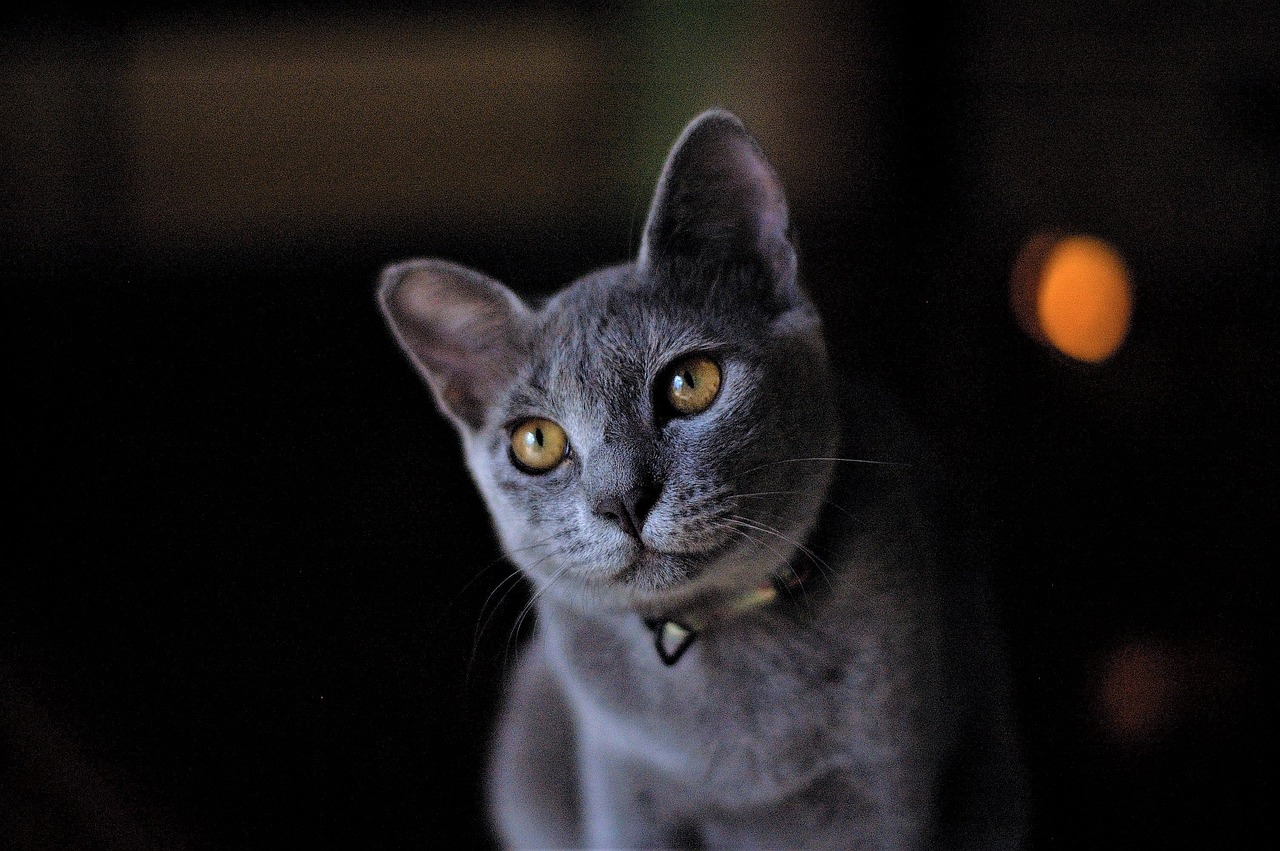
Nutrition for Aging Felines
As our feline friends gracefully age, their nutritional needs evolve significantly. It’s not just about feeding them; it’s about providing a diet that caters to their specific health requirements. Think of it like upgrading from a compact car to a luxury vehicle—both serve the purpose of transportation, but one offers more comfort and efficiency tailored to its driver. Similarly, senior cats require a diet that supports their changing bodies and lifestyles.
First off, let’s talk about the importance of high-quality ingredients. Senior cats often face challenges such as reduced metabolism, dental issues, and a decrease in activity levels. Therefore, the food they consume should be rich in essential nutrients without being overly caloric. Look for products specifically formulated for senior cats, as these typically contain the right balance of protein, fat, and carbohydrates. A good rule of thumb is to choose foods that list real meat as the first ingredient, as this provides the protein they need to maintain muscle mass.
Another critical aspect of senior cat nutrition is hydration. Cats are notorious for not drinking enough water, and as they age, the risk of dehydration and related health issues increases. To combat this, consider incorporating wet food into their diet, which can significantly boost their moisture intake. Additionally, providing fresh water at all times is essential. Some cats are attracted to running water, so investing in a pet water fountain can encourage them to drink more.
Furthermore, it’s essential to monitor their weight closely. Senior cats can easily become overweight, which can lead to a myriad of health problems, including diabetes and joint issues. Regularly weighing your cat and adjusting their food portions accordingly can help maintain a healthy weight. If you notice significant weight changes, it’s a good idea to consult your veterinarian for personalized advice.
Lastly, consider the role of supplements in your senior cat's diet. Just like humans might take vitamins to fill nutritional gaps, senior cats can benefit from specific supplements. For instance, omega-3 fatty acids can support joint health and reduce inflammation, while antioxidants may help with cognitive function. However, it’s crucial to consult your vet before introducing any new supplements to ensure they are appropriate for your cat's individual health needs.
In summary, providing the right nutrition for aging felines is not just about filling their bowls; it’s about ensuring their golden years are filled with vitality and joy. By focusing on high-quality food, hydration, weight management, and appropriate supplements, you can help your senior cat thrive in their later years.
- What type of food should I feed my senior cat? Look for high-quality, age-appropriate food that lists real meat as the first ingredient.
- How can I tell if my senior cat is dehydrated? Signs include lethargy, dry gums, and decreased urination. Wet food can help increase their hydration.
- Is it necessary to give my senior cat supplements? While not always necessary, certain supplements can be beneficial. Always consult your vet first.
- How often should I check my senior cat's weight? Regularly, ideally every month, to ensure they maintain a healthy weight.
Choosing the Right Food
When it comes to selecting the right food for your senior cat, it's not just about grabbing the first bag that catches your eye at the store. Oh no, it’s much more nuanced than that! Senior cats have unique dietary needs that differ significantly from their younger counterparts. As they age, their metabolism slows down, and their bodies require a specific balance of nutrients to stay healthy and active. So, what should you look for in their food? Let's dive into the essentials!
First and foremost, high-quality protein is crucial. Cats are obligate carnivores, meaning their bodies thrive on protein sourced from meat. Look for foods that list real meat as the first ingredient. This ensures that your feline friend is getting the necessary amino acids to maintain muscle mass and overall vitality. You might be wondering, "What about grains?" While some cats can tolerate grains, many senior cats benefit from a grain-free diet that focuses on high-quality proteins and healthy fats.
Speaking of fats, don’t shy away from them! Healthy fats are essential for maintaining a senior cat's energy levels. Omega-3 and Omega-6 fatty acids, in particular, support skin and coat health, joint function, and even cognitive function. So, when browsing the aisles, keep an eye out for these beneficial ingredients. You might also consider foods enriched with antioxidants to help combat oxidative stress, which can lead to various age-related issues.
Another vital aspect to consider is the caloric content. Senior cats often require fewer calories than younger cats due to decreased activity levels. However, this doesn’t mean you should compromise on nutrition. It’s essential to find a balance that maintains their energy without contributing to weight gain. A good rule of thumb is to consult your veterinarian to determine the appropriate caloric intake for your senior cat, considering their specific health conditions and lifestyle.
To help you visualize the differences in cat food options, here’s a simple table highlighting key components to consider:
| Component | Importance | Examples |
|---|---|---|
| High-Quality Protein | Maintains muscle mass | Chicken, Turkey, Fish |
| Healthy Fats | Provides energy and supports skin/coat health | Salmon Oil, Flaxseed Oil |
| Antioxidants | Fights oxidative stress | Blueberries, Spinach |
| Caloric Content | Prevents weight gain | Senior-specific formulas |
Lastly, it’s essential to introduce any new food gradually. Abrupt changes can lead to digestive upset, which is the last thing you want for your beloved pet. Mix the new food with their current diet over a week, slowly increasing the proportion of the new food. This way, you can ensure a smooth transition and monitor how your cat reacts to the new diet.
In conclusion, choosing the right food for your senior cat is a balancing act that requires careful consideration of their unique nutritional needs. By focusing on high-quality proteins, healthy fats, and the right caloric content, you can help your furry friend thrive in their golden years. Remember, when in doubt, don’t hesitate to consult your veterinarian for personalized advice tailored to your cat’s health requirements!
Hydration Needs
When it comes to our beloved senior cats, hydration is often an overlooked aspect of their health. As cats age, their bodies undergo various changes, making them more susceptible to dehydration. This can lead to a host of problems, particularly with their kidneys and urinary tract. To put it simply, keeping your senior feline well-hydrated is as crucial as ensuring they have a cozy spot to nap. But how do you know if your furry friend is drinking enough water? Here are a few signs to watch for:
- Decreased energy levels: If your cat seems more lethargic than usual, it might be time to check their water intake.
- Dry mouth and gums: A quick check of their mouth can reveal if they're dehydrated.
- Less frequent urination: If you notice fewer litter box visits, it could indicate hydration issues.
Encouraging your senior cat to drink more water can be a bit of a challenge, but there are several strategies you can employ. First off, consider investing in a cat water fountain. Cats are naturally attracted to running water, and a fountain can entice them to drink more. Additionally, you can place multiple water bowls around the house to ensure your kitty has easy access to fresh water at all times. Remember, it's essential to change the water daily to keep it clean and appealing.
Another effective way to boost your cat's hydration is through their diet. Many senior cat foods are designed to have higher moisture content, which can significantly contribute to their overall water intake. If your cat is particularly picky about water, you might also want to consider incorporating wet food into their diet. Not only does it provide essential nutrients, but it can also help with hydration.
Lastly, don’t forget about the power of broths and homemade soups. You can prepare a simple, low-sodium broth that can be offered as a treat or mixed with their food. Just be sure it’s safe for cats and doesn’t contain any harmful ingredients like onions or garlic. By making hydration a priority, you can help your senior cat maintain their health and vitality well into their golden years.
- How much water should my senior cat drink daily? A general guideline is that cats should drink about 3.5 to 4.5 ounces of water per 5 pounds of body weight daily. However, this can vary based on diet and activity levels.
- What are the signs of dehydration in cats? Look for symptoms like dry mouth, lethargy, and decreased urination. Skin elasticity can also be a good indicator; gently pinch the skin on the back of the neck and see how quickly it returns to normal.
- Can I give my cat flavored water? Yes, as long as it doesn't contain any harmful additives. Some cats enjoy water infused with a bit of tuna or chicken flavor.
Supplements for Senior Cats
As our feline friends gracefully age, their bodies undergo various changes that may require additional support. can play a pivotal role in enhancing their quality of life and addressing specific health concerns. Just like how we might take vitamins to maintain our health, our older cats can benefit from targeted supplements that cater to their unique needs.
One of the most common issues faced by senior cats is joint pain. As they age, their joints may become stiff and uncomfortable, making it difficult for them to jump, run, or even groom themselves effectively. To combat this, many pet owners turn to glucosamine and chondroitin supplements. These ingredients are known for their ability to support joint health and mobility, allowing our furry companions to maintain an active lifestyle.
Another area of concern is cognitive decline. Just like humans, cats can experience changes in their cognitive functions as they age. Supplements containing omega-3 fatty acids, particularly DHA, have shown promise in supporting brain health and potentially slowing cognitive decline. These fatty acids can be found in fish oil supplements, which can be easily added to their food.
Furthermore, senior cats may also benefit from antioxidants that help combat oxidative stress. Antioxidants such as vitamins E and C can boost their immune system, providing an extra layer of protection against illnesses. When considering supplements, it’s crucial to consult with a veterinarian who can recommend the most suitable options based on your cat’s specific health profile.
To make informed decisions about supplements, it’s important to understand which ones are beneficial and how they can be integrated into your cat’s daily routine. Below is a brief overview of some popular supplements for senior cats:
| Supplement | Benefits |
|---|---|
| Glucosamine & Chondroitin | Supports joint health and mobility. |
| Omega-3 Fatty Acids | Promotes brain health and cognitive function. |
| Antioxidants (Vitamins E & C) | Boosts the immune system and fights oxidative stress. |
| Probiotics | Supports digestive health and gut flora balance. |
Incorporating these supplements into your senior cat’s diet can significantly improve their overall well-being. However, it’s essential to start slowly and monitor your cat for any adverse reactions. Regular check-ups with your vet will help ensure that your cat’s health is on the right track and that the supplements are having the desired effect.
- What are the signs that my senior cat might need supplements? Look for changes in behavior, decreased activity, weight loss, or difficulty in movement.
- Can I give my senior cat human supplements? No, always use supplements specifically formulated for cats, as human supplements may contain ingredients that are harmful to them.
- How do I know which supplements are right for my cat? Consult your veterinarian for personalized recommendations based on your cat's health status and needs.
- Are there any side effects associated with cat supplements? Some cats may experience mild gastrointestinal upset. Always start with a small dose and observe your cat's reaction.
Monitoring Weight Changes
Weight management is a crucial aspect of caring for senior cats. As our feline friends age, their metabolism and activity levels often change, leading to fluctuations in weight that can signal underlying health issues. Regularly monitoring their weight not only helps in identifying these changes early but also plays a significant role in adjusting their diet and overall care. Think of it like keeping an eye on the fuel gauge in your car; if it dips too low, it’s time to refuel!
Many pet owners may wonder, “How often should I weigh my senior cat?” Ideally, you should weigh your cat at least once a month. This frequency allows you to spot any sudden weight loss or gain, which can be a red flag for various health problems. If you notice a change of more than 10% in your cat's weight, it’s time to consult your veterinarian. They can help determine if the change is due to a dietary issue, a medical condition, or simply a natural part of aging.
To make the process easier, consider setting up a simple weight log. You can use a notebook or a digital app to track your cat's weight over time. Here’s a quick example of how you might structure your log:
| Date | Weight (lbs) | Notes |
|---|---|---|
| 01/01/2023 | 10.5 | Healthy, active |
| 02/01/2023 | 10.0 | Less active, possible dental issues |
| 03/01/2023 | 11.0 | Increased appetite, vet visit scheduled |
In addition to tracking weight, pay attention to your cat's body condition. You can assess this by feeling their ribs and spine. Ideally, you should be able to feel their ribs without excessive pressure, and they should have a noticeable waist when viewed from above. If your cat feels too bony or is carrying extra weight, it’s time to rethink their diet and activity level.
Lastly, remember that weight management is not just about avoiding obesity; underweight cats can also face serious health risks. Conditions like hyperthyroidism or diabetes can lead to weight loss, so it’s essential to keep an eye on both ends of the spectrum. By being proactive and attentive, you can help your senior cat maintain a healthy weight, ensuring they live a long, happy, and fulfilling life.
- How can I tell if my senior cat is overweight? Look for signs like difficulty grooming, lethargy, and a lack of interest in play. You should also be able to feel their ribs without too much pressure.
- What should I do if my cat is losing weight? Consult your veterinarian immediately, as sudden weight loss can indicate serious health issues.
- Can I use a regular scale to weigh my cat? Yes! You can weigh yourself, then weigh yourself holding your cat, and subtract the difference to find your cat's weight.
- How can I help my senior cat maintain a healthy weight? Provide a balanced diet tailored for seniors, ensure regular vet check-ups, and encourage gentle play to keep them active.
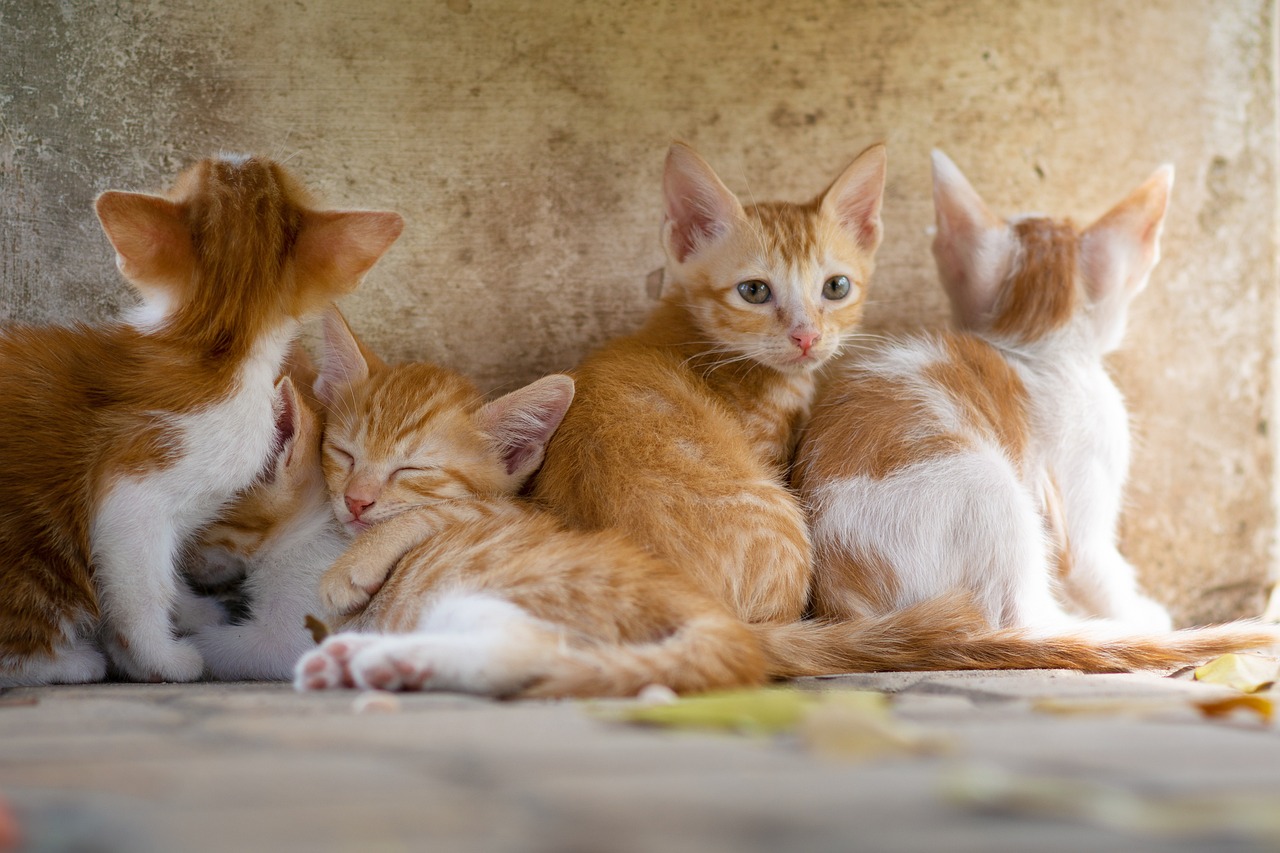
Creating a Comfortable Environment
Creating a comfortable environment for senior cats is not just a luxury; it's a necessity that can significantly enhance their quality of life. As our feline friends age, they may experience a variety of physical limitations, such as reduced mobility or decreased vision. Therefore, it's essential to tailor their living space to meet these evolving needs. Think of it as transforming their home into a cozy haven where they can feel secure, relaxed, and stimulated. Just like we enjoy a comfortable chair or a warm blanket on a chilly evening, our senior cats deserve the same care and attention.
One of the first steps in this process is to ensure that the environment is easily navigable. Implementing accessibility features can make a world of difference. For instance, consider adding ramps or soft bedding in areas where your cat frequently rests. These small adjustments can assist them in moving around with greater ease and comfort. Imagine having to climb a steep staircase every day; it would be exhausting, right? For cats, a simple ramp can be their saving grace.
Moreover, it's crucial to create designated safe play areas that allow senior cats to engage in gentle activities. These spaces should be free from clutter and hazards, promoting both physical health and mental stimulation without the risk of injury. Cats are naturally curious creatures, and providing them with a safe environment to explore can keep their spirits high. Incorporating soft toys or interactive elements can encourage them to play, which is vital for their mental well-being. Remember, a happy cat is a healthy cat!
Another important aspect of creating a comfortable environment is considering their resting areas. Senior cats often prefer warmer spots to nap, so placing their beds in sunlit areas can be beneficial. Additionally, ensuring that their sleeping spots are easily accessible and cushioned can help them feel secure and relaxed. You wouldn’t want to sleep on a hard surface, would you? Cats are no different; they appreciate comfort just as much as we do.
Lastly, it's essential to keep their living space clean and organized. Regularly checking for any potential hazards, such as loose wires or small objects that could be swallowed, is a must. Cats may not see as well as they used to, so a clutter-free environment can help prevent accidents. Just like we feel more at ease in a tidy room, our furry companions will thrive in a well-maintained space.
- What are the signs that my senior cat needs a more comfortable environment? Look for signs such as reluctance to move around, excessive sleeping, or difficulty accessing their favorite spots.
- How can I encourage my senior cat to play? Use gentle toys and interactive games that require minimal physical exertion, and always supervise their playtime.
- Is it necessary to change my senior cat's diet as they age? Yes, their nutritional needs change as they age, so it's essential to consult with your vet for recommendations on suitable food.
Accessibility Features
Creating a senior-friendly environment for your feline friend is essential for their well-being. As cats age, they may experience mobility issues, decreased vision, or even cognitive decline, making it crucial to adjust their living space to accommodate these changes. Think of your home as a cat-friendly haven where every corner caters to their needs. Just like we might install ramps or grab bars for elderly humans, your senior kitty might benefit from similar adjustments.
One of the most effective ways to enhance accessibility is by installing ramps or steps that lead to their favorite spots, such as the windowsill or their cozy bed. These features can help them navigate their environment without the stress of jumping, which can be tough on their joints. Moreover, providing soft bedding in multiple locations can encourage them to rest comfortably wherever they choose to lounge. Remember, a warm and supportive surface can make all the difference in their day-to-day comfort.
In addition to ramps and soft bedding, consider the layout of your home. Keeping essential items, such as food, water, and litter boxes, easily accessible is vital. Placing these necessities on the same level as their resting areas can minimize unnecessary trips and potential accidents. You might also want to think about using non-slip mats in areas where they frequently walk. This simple addition can help prevent slips and falls, ensuring that your senior cat feels secure as they move around.
Another fantastic way to make your home more accessible is by providing safe play areas. Designating a space where they can engage in gentle activities can stimulate their minds and bodies without overexertion. Consider using interactive toys that require minimal effort to engage with, such as feather wands or puzzle feeders. These can keep their spirits high while ensuring they’re not straining themselves. After all, just like us, senior cats need a little fun in their lives!
Lastly, if your senior cat has vision problems, consider adding visual cues around your home. Brightly colored mats or toys can help them navigate their space more easily. It’s akin to putting up signs for directions; these little adjustments can make a world of difference in helping them feel secure and confident in their surroundings.
In summary, by implementing these , you can create a nurturing environment that promotes your senior cat's health and happiness. Just remember, the goal is to enhance their quality of life, making every day a little easier and a lot more enjoyable!
- What are the signs that my cat is becoming a senior? As cats age, they may show signs such as reduced activity, changes in appetite, and increased sleeping. Regular vet check-ups can help monitor their health.
- How can I tell if my senior cat is in pain? Look for changes in behavior, such as increased hiding, reluctance to jump, or changes in grooming habits. If you suspect pain, consult your veterinarian.
- What type of food is best for senior cats? High-quality, age-appropriate cat food that includes essential nutrients and is easy to digest is ideal for senior cats. Always consult with your vet for specific recommendations.
- How often should I take my senior cat to the vet? It's recommended to schedule check-ups at least twice a year for senior cats to monitor their health closely.
Safe Play Areas
This article explores the specific requirements of senior cats, including health care, nutrition, and environmental adjustments, to ensure they lead happy and fulfilling lives as they age.
As cats age, they become susceptible to various health issues. Regular veterinary check-ups and understanding common ailments can help in managing their health effectively.
Proper nutrition is crucial for senior cats. Tailoring their diet to meet their changing needs can improve their overall health and longevity.
Selecting high-quality food formulated for senior cats can ensure they receive essential nutrients, helping to maintain their energy levels and support their immune system.
Senior cats often require increased hydration. Understanding their water intake and encouraging drinking can prevent urinary issues and promote kidney health.
Certain supplements can benefit senior cats, addressing specific health concerns like joint pain or cognitive decline. Consulting a vet before introducing supplements is essential.
Weight management is critical for senior cats. Regularly monitoring their weight can help identify health issues early and adjust their diet as necessary.
A safe and comfortable living space is vital for senior cats. Adjustments in their environment can help accommodate their physical limitations and enhance their quality of life.
Designating for senior cats is not just a luxury; it's a necessity for their physical and mental well-being. As cats age, they may lose some agility and energy, which means that their playtime should be tailored to accommodate these changes. Think of it as creating a gentle gym where they can exercise without the risk of injury. A few key elements can transform any space into a safe haven for your aging feline friend.
First and foremost, the play area should be free of obstacles that could pose a tripping hazard. Consider removing sharp-edged furniture or clutter that your cat might stumble over. Soft, cushioned surfaces like rugs or mats can provide a safe landing if your cat decides to leap or pounce. This is particularly important because senior cats may not have the same reflexes they once did.
Incorporating interactive toys can also stimulate your senior cat's mind while encouraging gentle physical activity. Toys that require minimal effort, such as feather wands or laser pointers, can engage your cat without overwhelming them. You might even set up a cozy corner with a few of their favorite toys, allowing them to choose how they want to play. Moreover, consider rotating the toys regularly to keep their interest piqued.
Another factor to consider is the placement of scratching posts or climbing structures. These should be easily accessible and stable enough to support your cat's weight without wobbling. Cats love to scratch and climb, and providing them with a safe outlet for these natural behaviors can help keep them active and happy. Additionally, ensuring that their play area has a variety of textures can stimulate their senses and encourage exploration.
Lastly, don’t underestimate the power of natural light and fresh air. If possible, set up the play area near a window where your cat can bask in the sun or watch the world go by. This not only provides mental stimulation but also promotes a sense of well-being. Just remember to ensure that windows are secured to prevent any accidental escapes.
By creating a safe play area tailored to the needs of senior cats, you’re not just enhancing their physical health; you’re also enriching their lives. It’s about finding that balance between safety and enjoyment, allowing them to thrive in their golden years.
- How often should I take my senior cat to the vet? It's recommended to schedule check-ups every six months to monitor their health closely.
- What signs indicate my senior cat is in pain? Look for changes in behavior, such as hiding, decreased appetite, or reluctance to jump or play.
- Can I change my senior cat's diet suddenly? It's best to transition their diet gradually over a week to avoid digestive issues.
- What type of toys are best for senior cats? Soft, interactive toys that require minimal effort are ideal for engaging senior cats.
Frequently Asked Questions
- What are the common health issues in senior cats?
As cats age, they can face a variety of health challenges. Common issues include arthritis, dental disease, kidney problems, and hyperthyroidism. Regular vet check-ups are crucial to catch these early and manage them effectively.
- How should I adjust my senior cat's diet?
It's essential to choose high-quality food specifically formulated for senior cats. These diets typically have adjusted protein levels, fewer calories, and added nutrients to support their aging bodies. Always consult your vet for personalized recommendations.
- How can I ensure my senior cat stays hydrated?
Encouraging your senior cat to drink more water can be done by providing fresh, clean water daily and considering a water fountain, which many cats prefer. Wet food can also help increase their fluid intake.
- Are supplements necessary for senior cats?
Supplements can be beneficial for senior cats, particularly for joint health or cognitive function. However, it's vital to consult with your veterinarian before introducing any new supplements to ensure they're appropriate for your cat's specific needs.
- What signs should I look for to monitor my senior cat's weight?
Keep an eye on your cat's body shape and weight. If you can feel their ribs easily or if they have a noticeable sagging belly, they may be overweight. Conversely, if their ribs are prominent, they might be underweight. Regular weigh-ins at the vet can help track changes.
- How can I make my home more comfortable for my senior cat?
Creating a comfortable environment for your senior cat involves making adjustments like providing soft bedding, ensuring easy access to food and water, and adding ramps if they have mobility issues. This helps them feel secure and reduces stress.
- What kind of play areas are suitable for senior cats?
Designate quiet and safe play areas with soft surfaces and gentle toys. Activities should be low-impact to avoid overexertion, focusing on mental stimulation rather than vigorous exercise.

